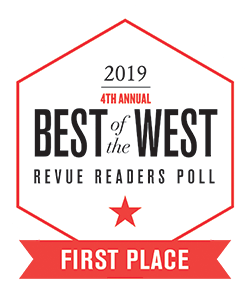What is retinal vascular occlusion?
Retinal vascular occlusion occurs when a blood vessel in the retina, the layer of tissue at the back of your eye, becomes blocked. The job of the retina is to sense light and send signals to your brain so you can see. When blood vessels serving the retina become blocked or have a clot, pressure builds up in the eye. When this happens, the retina is unable to complete its job, resulting in vision loss.
What are the symptoms of retinal vascular occlusion?
You will notice a sudden change in vision, usually only in one eye. Your vision might become blurred, or you might not be able to see at all in that eye. You will not feel any pain in your eye with this vision loss.
Will I lose my eyesight?
If you lose any eyesight, you should seek medical treatment immediately because waiting to see a doctor makes the vision loss more likely. Sometimes people suffer short-term damage to their vision while others may suffer permanent damage, and this depends on how severe the damage is and how quickly you start treatment.
What causes retinal vascular occlusion?
Still today, eye doctors are not sure what causes the condition. While it is possible retinal vascular occlusion occurs because the veins in the eye are very narrow, the exact cause is not known. We do know there are risk factors that can lead to the condition, and these include:
- Hardening of the arteries
- Blood clots anywhere in the body that can travel to the eye
- Heart problems, such as valve problems or an irregular heartbeat
- Diabetes
- High blood pressure
- High cholesterol
- Being 60 or older
- Being overweight
- Smoking
- Glaucoma
How will my doctor diagnose retinal vascular occlusion?
Your ophthalmologist will:
- Check the pressure in your eyes
- Check your vision
- Examine your retina. To do this, your doctor may take a high definition image of the retina.
- Use dye to examine your eye. The doctor may inject a special dye that travels through the blood vessels in your eye.
- Perform heart tests, such as an EKG, if they think the clots came from another part of your body.
What can my eye doctor do to treat retinal vascular occlusion?
There is no specific medication available for this condition, but treatments may include:
- Drugs to reduce swelling, called corticosteroids. These can be directly injected into the eye to reduce swelling.
- Laser therapy. The doctor may use lasers to break apart the clot or blockage in the blood vessel.
- Blood thinners
Can I do anything to prevent retinal vascular occlusion?
This condition may occur because of issues with your heart and blood vessels, therefore taking care of your heart, and living a healthy lifestyle is vital.
- Exercise regularly
- Eat a healthy, low-fat diet
- Lose weight if you are overweight
- Quit smoking
- Control your blood sugar if you are diabetic
- Take blood thinners such as baby aspirin if your doctor recommends
Regular eye exams are an essential part of your health. Grand Rapids Ophthalmology has two fellowship-trained retinal specialists to treat your retina problems, including retinal vascular occlusions. Drs. Gindzin and Gohel offer the most advanced treatment options, including drug therapies, injections, surgery, and laser treatments. How they choose to treat your retinal vascular occlusion depends on their recommendations and what is best for your unique eyes.
We’ll make sure you understand your risks and what you can do to lower them. If you have further questions about retinal vascular occlusion and your eye health, schedule an appointment at Grand Rapids Ophthalmology. No matter what your eye care issue is, Grand Rapids Ophthalmology can help with our expert team of doctors at our 11 convenient locations.
Schedule an Appointment
Schedule an appointment today to experience the GRO difference. Call 616.588.6598 or click here.





















